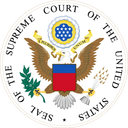
William Zervakos, jury foreman for the Jodi Arias trial, recently shared the challenges of being a part of a capital jury. Zervakos described jury deliberations in Arias’s case as a “brutal no-win situation” that was “unfair.” He said that the deliberations were full of tears as each juror considered whether they should sentence Jodi Arias to death or life in prison. He said, “We’re not lawyers. We can’t interpret the law. We’re mere mortals. And I will tell you I’ve never felt more mere as a mortal than I felt for the last five months.” On May 8, the jury convicted Arias of first-degree murder but they could not reach a decision on her sentence after 13 hours of deliberations. The judge was forced to declare a mistrial of the penalty phase and dismissed the jury. If the prosecutors decide to seek the death penalty again, jury selection could take several months given the difficulty of finding jurors who would be impartial in a case that has garnered significant media attention. A retrial date has been tentatively set for July 18.
(“Arias trial jury foreman says death decision unfair for 12 average people who aren’t lawyers,” Associated Press, May 25, 2013). See Sentencing.



